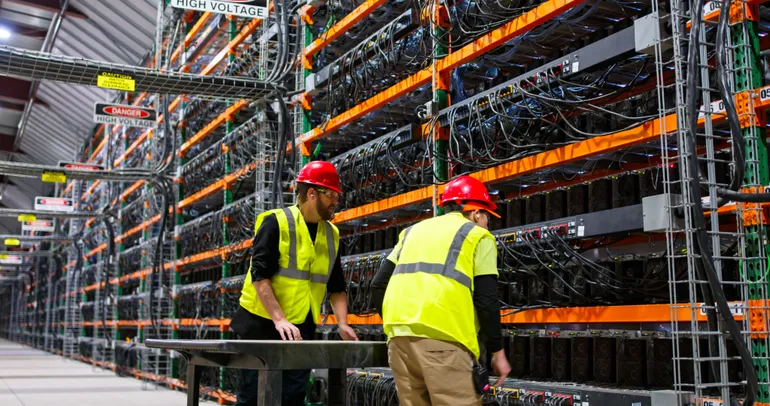The Federal Energy Regulatory Commission on Tuesday rejected a proposal from Basin Electric Power Cooperative to establish rate schedules for cryptocurrency operations and other large loads.
Basin failed to show that its proposal to treat cryptocurrency mining loads differently from other loads of similar size is just and reasonable and not unduly discriminatory or preferential, FERC said in its potentially precedent-setting decision.
“Specifically, Basin has not provided adequate evidence to support its assertion that all crypto loads pose a greater stranded asset risk than other loads of similar size,” FERC said.
Basin Electric argued that cryptocurrency mining operations can quickly come and go because they don’t require significant investments in infrastructure or a workforce.
However, FERC said Basin Electric failed to show that crypto operations are more likely than other types of customers to cause stranded assets by packing up shop and moving elsewhere after the cooperative invests in transmission and generating assets to serve them.
“We acknowledge that there are increasing utility and stakeholder concerns related to the growing number of large loads seeking electric service,” FERC said. “We are sympathetic to Basin’s concerns regarding its ability to serve expected load growth reliably and economically. Therefore, our rejection herein is without prejudice.”
Basin Electric, based in Bismarck, North Dakota, is a wholesale generation and transmission cooperative with 140 utility members that serve about 3 million customers.
In March, Basin Electric asked FERC to approve three rate schedules for crypto and blockchain loads as well as a schedule for new non-crypto loads larger than 75 MW. The proposal marked the first time FERC had considered specific rates for cryptocurrency operations, according to Basin Electric.
Under the proposal, for crypto loads in Basin Electric’s service territory in the Southwest Power Pool and Midcontinent Independent System Operator footprints, the cooperative intended to buy energy to serve the loads at market prices and then pass the costs to its members, which would recoup those expenses from the crypto loads, according to FERC. Basin planned to negotiate a rate with its members for crypto loads in the Western Interconnection.
Basin Electric told FERC that it had 200 MW of crypto load in 2023, and it expected more than 1,000 MW in crypto operations to come online in its service territory in the coming years.
In support of adding a “large load” rate schedule, Basin Electric said its members are in discussion with 22 potential projects totaling nearly 5,000 MW, close to the cooperative’s peak load in 2022, according to FERC.
Some of those projects include direct air capture plants, hydrogen hubs and green ammonia factories driven by federal and state legislation, FERC said.
This news is republished from another source. You can check the original article here








